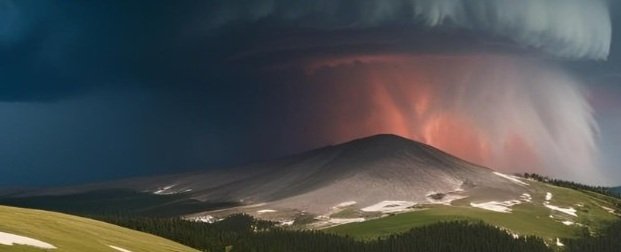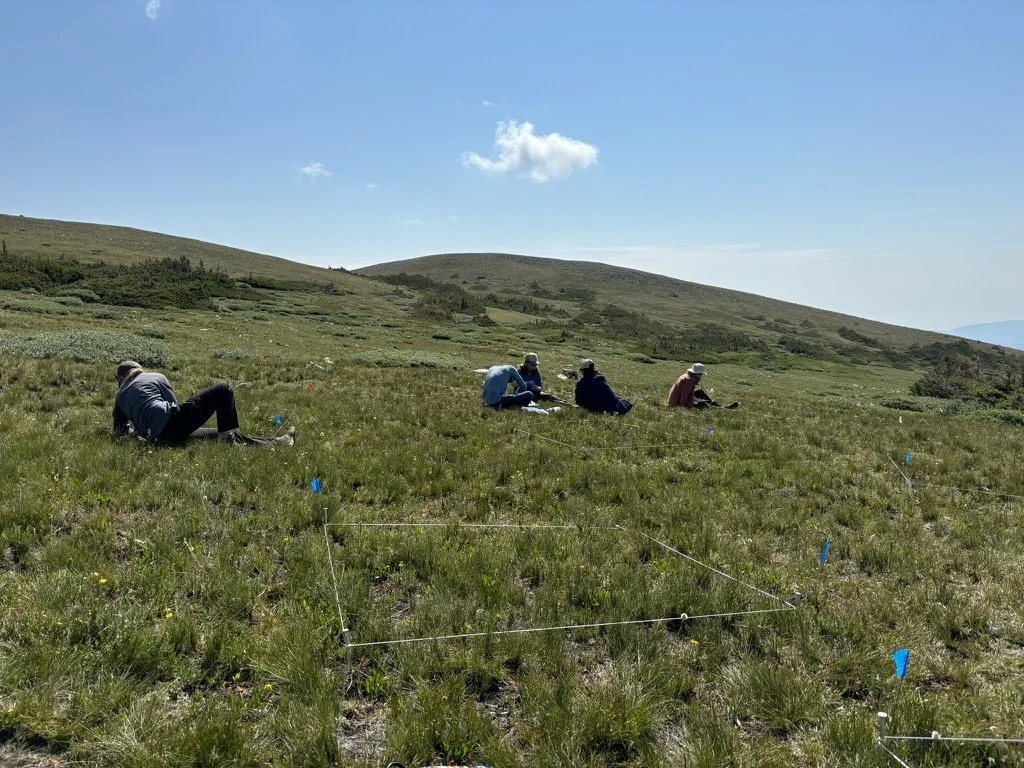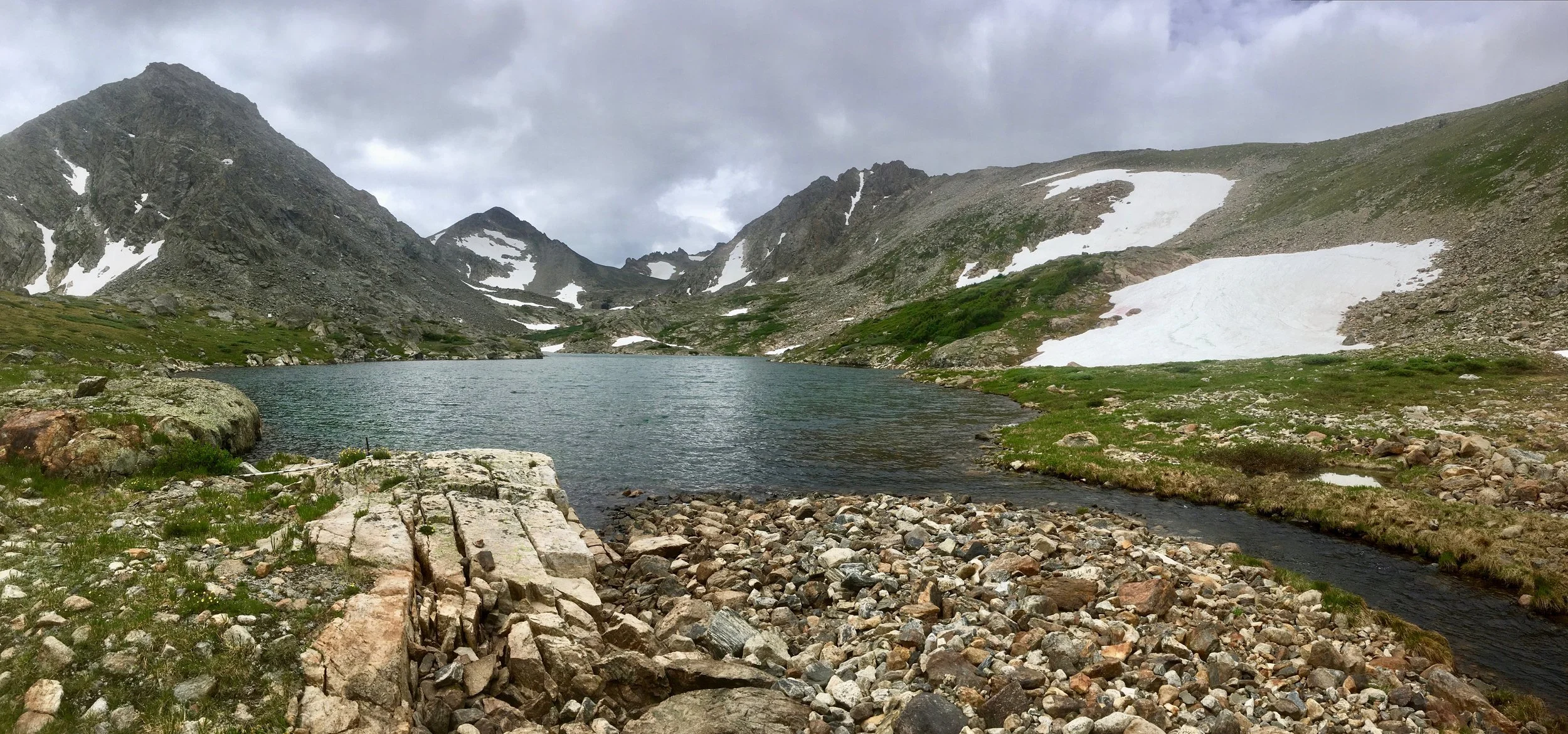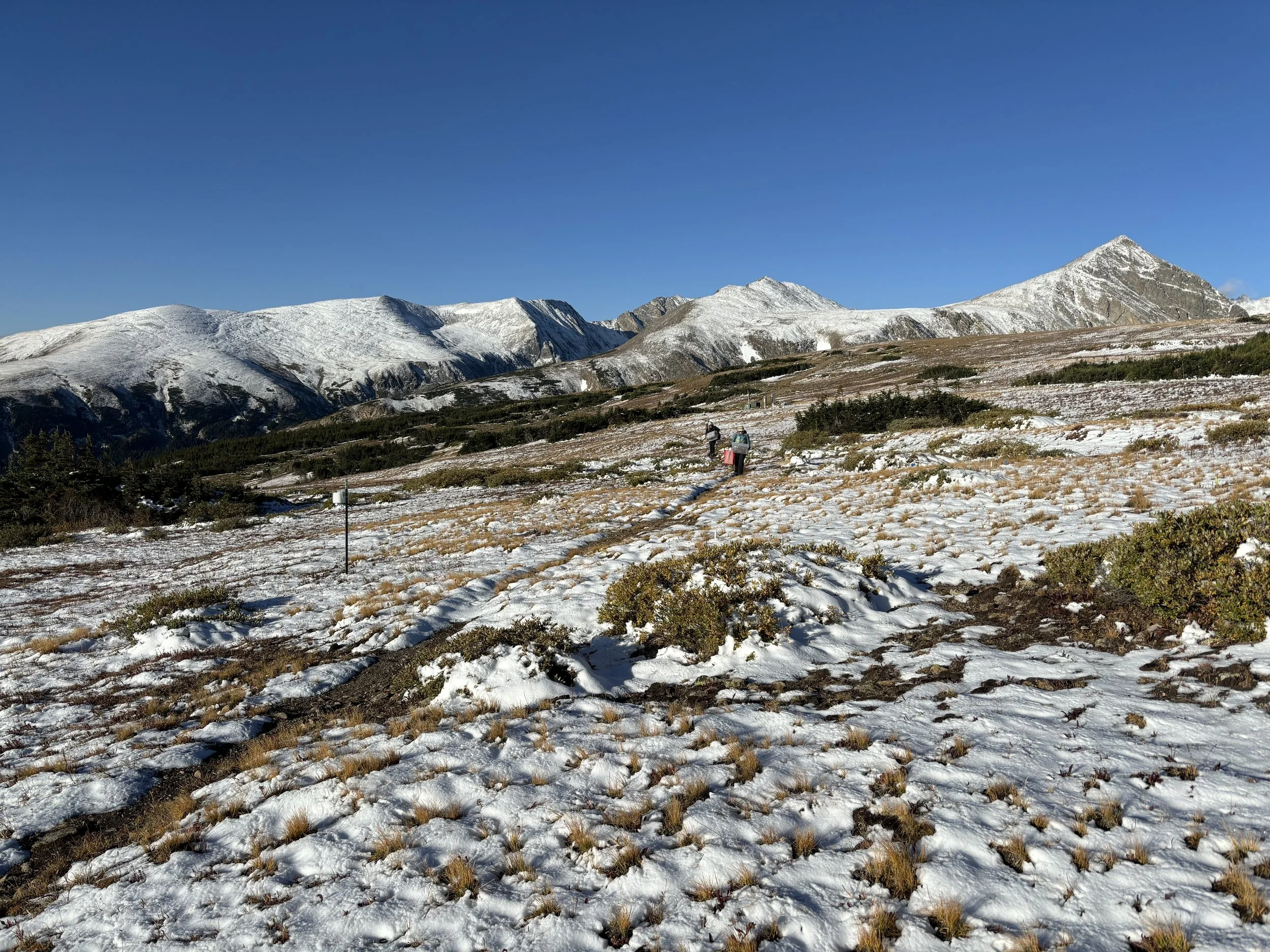Miles Moore, a CU Boulder PhD student and researcher with the Niwot Ridge LTER, will be giving a talk on alpine tundra productivity through the Environmental Data Science Seminar Series. Follow this link for more information, including options for joining the meeting in-person or by remotely.
Title: Divergent trends in alpine tundra productivity linked to changes in snow-cover and summer temperature.
Speaker: Miles Moore, CU Boulder
Abstract: Alpine tundra productivity responses to climate change remain largely unknown in the Southern Rocky Mountains despite evidence of widespread greening in Arctic and Eurasian alpine systems. Using 39 years of Landsat data, 20 years of field biomass records, and a four-year warming–snow experiment, we show that regional NDVI declined slightly overall but exhibited strong spatial divergence across latitudinal gradients: warming reduced productivity in experiments, and browning was most common where growing seasons lengthened, while greening occurred where they’ve shortened. Finally, we examine preliminary NDVI trends at GLORIA sites across North America.
Speaker Bio: Miles is a PhD student in the Department of Ecology and Evolutionary Biology at CU Boulder studying vegetation phenology and productivity. His research focuses on applying computational methods to understand how biological systems respond to environmental change under uncertainty. By combining Bayesian modeling, machine learning, and high-performance computing, he works to create data-driven, theoretically informed models of ecological processes, with a particular emphasis on alpine and mountain landscapes.
If you wish to attend, email us for additional information!































